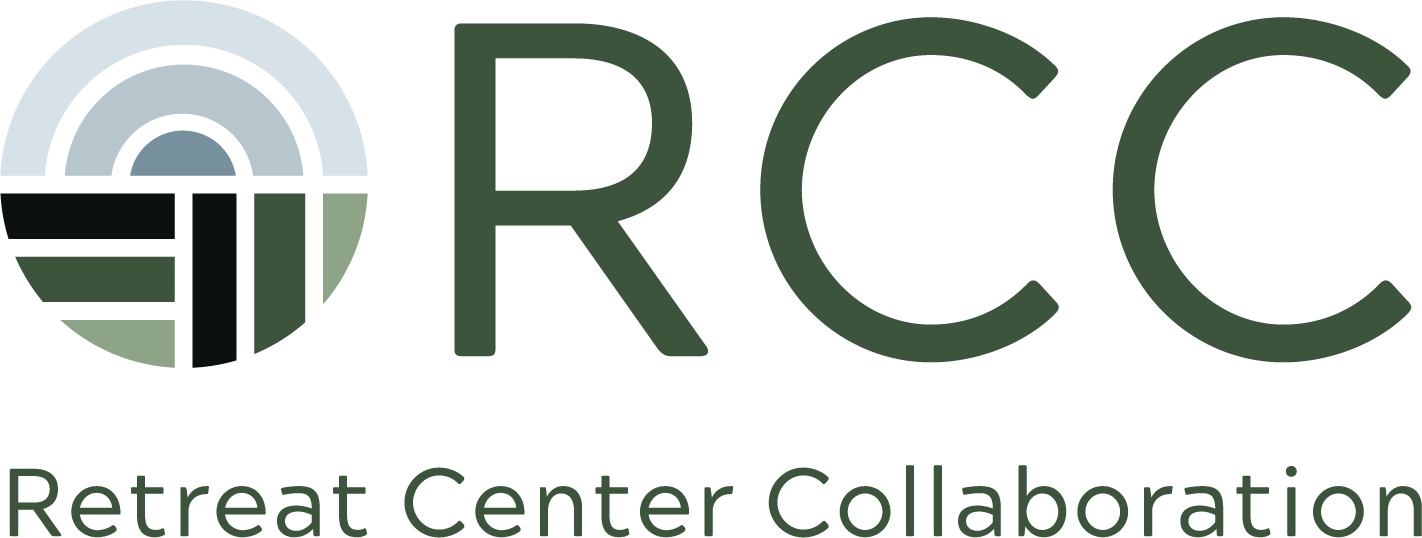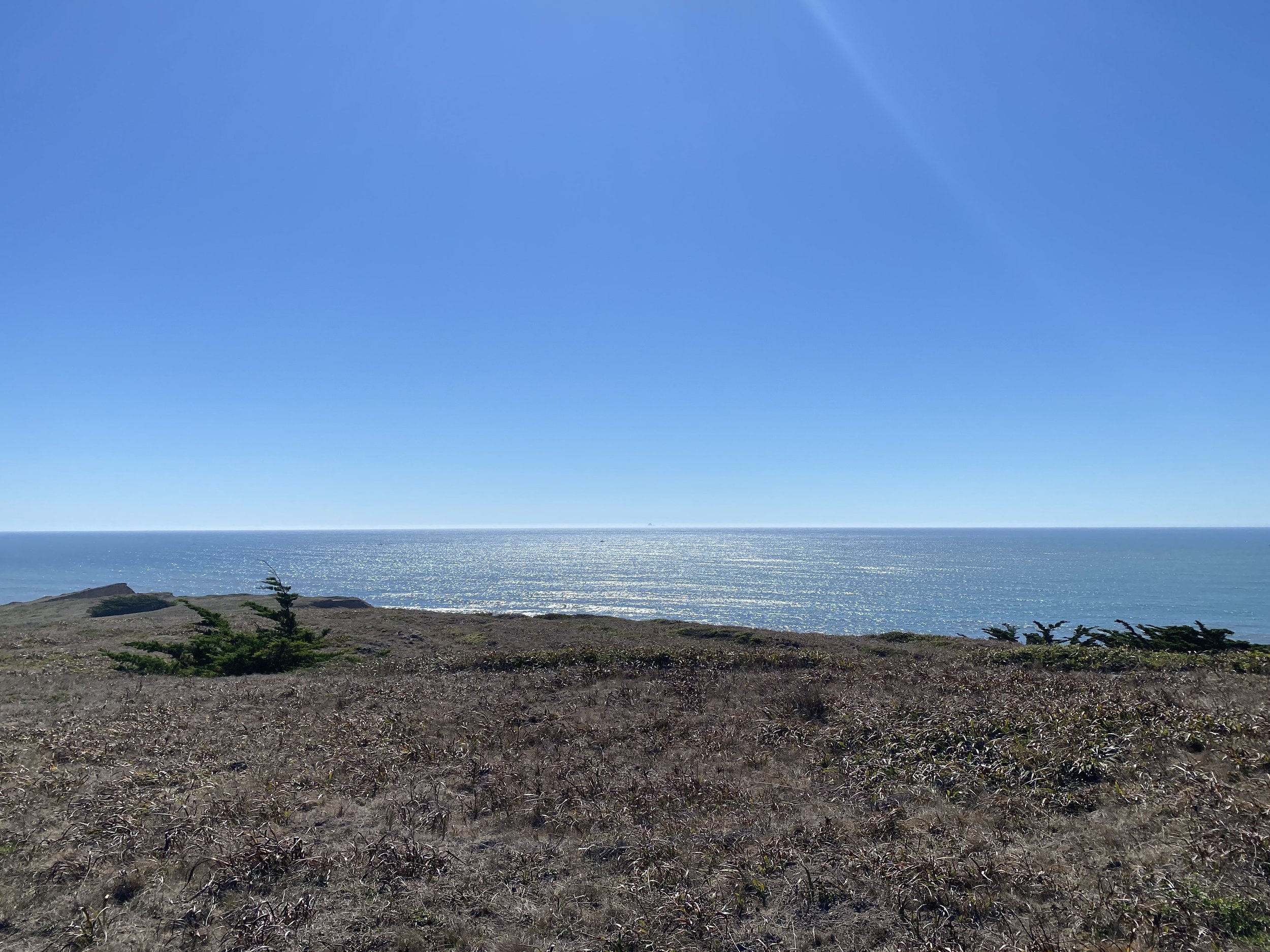Meet and Greet with the RCC Stewardship Circle
On October 11, the Stewardship Circle gathered with community members to share their stories and discuss their vision for the future of the Retreat Center Collaboration. Community members revealed how the RCC has served them through the challenges of the last two years. As the collaboration moves forward, the stewards and membership alike are broadening their vision to include new programs that foster contemplative space, support BIPOC activist leaders, and nurture land-healing initiatives.
View the full meeting video by clicking the image above.
Or scroll down for takeaways from the conversation.
Meet the Stewards
The Stewardship Circle guides the vision and high-level strategies of the RCC. They ensure the organization moves forward in alignment with its core values.
At the beginning of the meeting, Ben invited each of the stewards to share a story about their work or how they came to be connected with the RCC.
Michael Shewburg
Five Oaks Centre in Paris, Ontario
Like many retreat centers during the pandemic, Five Oaks had to adapt to the shock of the shutdown. It became a covid-isolation center for hundreds of migrant workers.
As Five Oaks reimagined their space to meet the needs of migrant workers during shutdown, they began to ask all kinds of questions: What does it mean to create space for people to come as they are? What does this space mean? Who else could benefit from this space beyond our usual guests?
Nanci Lee
Tatamagouche Centre in Tatamagouche, Nova Scotia
Tatamagouche Centre has a history of deep, real, “crunchy” discussions about the meaning of equity.
A ten-foot cross in their former chapel was seen as a symbol of residential schools and was a source of trauma for local Indigenous folks. They confronted these sensitive questions, and asked if the cross could be taken down to accommodate the wellbeing of their wider community.
They’ve seen a real need for affinity groups - to make space for BIPOC gatherings, Black gatherings, and queer and trans folks. Building bridges is important.
Oren Slozberg
Commonweal in Bolinas, California
RCC conversations have spurred reflections on who comes to Commonweal. Who has access? What classes, what races?
As we start to get to know each other, we gain a sense of belonging and community among retreat centers, as well as a network. These connections provide peer support in a broad and a narrow sense. Not only do we feel less isolated, we can also share practical knowledge we might not have access to in our individual bubbles.
Yolanda Ramirez-Salto
Dominican Center Marywood at Aquinas College in Grand Rapids, Michigan
For Yolanda, it’s all about relationship. Stepping away from her religious identity allowed her to step back into her religious community to do retreat work.
Retreat centers provided a space for Yolanda to build her relationships and spirituality, more so than her childhood religious experience.
Retreat centers are often little islands. To be connected to a community of centers empowers us all to have a bigger impact in our local region. Yolanda wants to see her center succeed, as well as the other centers in her community.
Michelle Scheidt
Fetzer Institute in Kalamazoo, Michigan
Michelle was among the original founders of the RCC and has had the joy of watching this effort unfold over the last four years.
She shared a photo of the bluff at Commonweal in Bolinas, Californa. That spot is connected to the birth of the RCC - it’s where the first RCC conversations happened.
There’s a quality of the land that allows for the unfolding of many beautiful things. With intentionality, we can open up space for deeper conversations and deeper connections - and we don’t always know what will emerge.
The bluff at Commonweal in Bolinas, California. Photo by Michelle Scheidt.
Ben Scott-Brandt
Retreat Center Collaboration in Grand Rapids, Michigan
As the Program Director of the RCC, Ben is widely known in the community. His story intersects deeply with the land - its stewardship and racial healing.
Visions for the Future
Yolanda: Our flames are brighter when we hold them together. Building relationships and building community here at RCC can have an impact in how we engage with our broader communities. Fostering connection - so we all have someone to lean on - is dear to Yolanda’s heart.
Michael: Universal flourishing is hard and good work. It’s not going to happen tomorrow. It’s slow work. There are oak trees on the land at Five Oaks that are older than Canada - they remember a time of universal flourishing, and they know it will come again. Our centers work toward this goal.
Oren: The RCC acts as a kind of “room of requirement” - we’re making space for what the larger retreat center community needs in a broad sense as well as a pragmatic sense. We’re cultivating ideas, fostering connections, identifying needs and workshopping practical responses. It’s “pragmagics” as the abbot of Green Gulch Monastery says.
Nanci: We’re being conscious of self-organizing groups - like a flock of starlings - and paying attention to how ideas spread. We’re rethinking our ingrained ways of doing things - our governance, structures, and norms. We’re emphasizing rest, less content, and more gathering. We’re leaning into “what’s nourishing and yummy.”
Michelle: At Commonweal the focus is on “healing people and healing the planet.” At Fetzer the focus is on “helping build the spiritual foundation for a loving world.” Our collective work is about a larger healing that we’re being called to do. Collective work is hopeful and inspiring.
Community Responses
The RCC serves the retreat center community as a network and vital resource. In the wake of the pandemic shutdown, centers are still facing questions of sustainability as they rise to meet a host of additional challenges: severe weather events, social upheaval, and widespread economic stress. RCC is a lifeline connecting information, resources, and new ideas to help keep centers vital and engaged in a time of great need.
Emerging ideas in the community:
Centers are finding that there’s a greater need to foster more intentional contemplative space instead of rigorously scheduling program time. More happens in the lunch break than in the session, as they say. It’s about finding a healthy balance between doing and being.
There’s an ongoing need to reimagine “business as usual.” Who do we serve and how do we serve? We’re asking how our spaces - both urban and rural - can be used in new ways to support universal flourishing. For example: Retreat centers may find they’re called to serve emergency responders or healthcare workers facing burnout and breakdown.
Ling Lo is consulting with Big Bear Retreat Center and they are interested in more collaborative programming, especially training and leadership for BIPOC folks.
Aaron Goggans at the WildSeed Society is looking for retreat center leaders who want to partner with BIPOC activist groups to provide sabbaticals and peer support spaces.
Connect With Us
If you would like to connect with any of our ongoing or emerging initiatives, please reach out to Program Director Ben Scott-Brandt.
Follow the link below to access audio and additional meeting notes.


